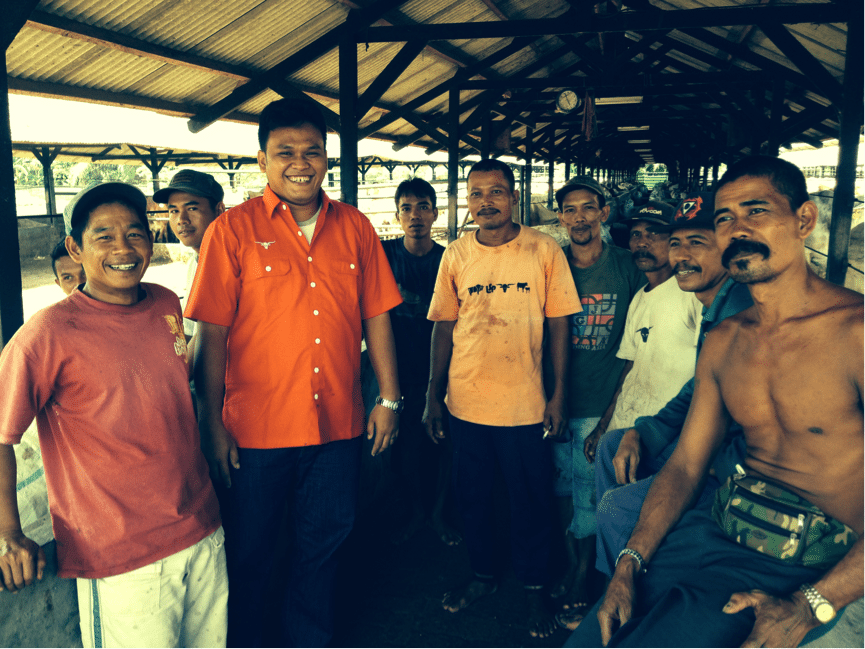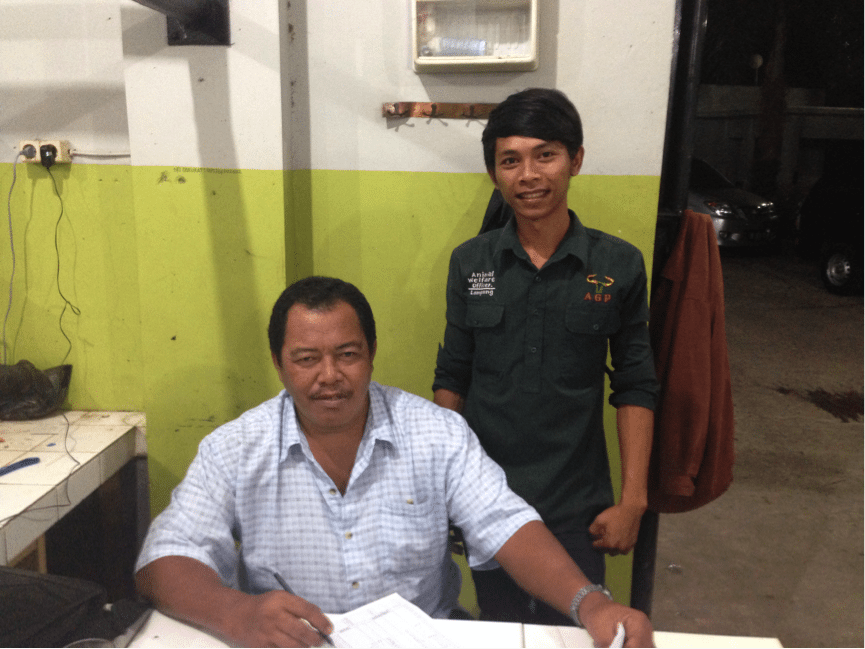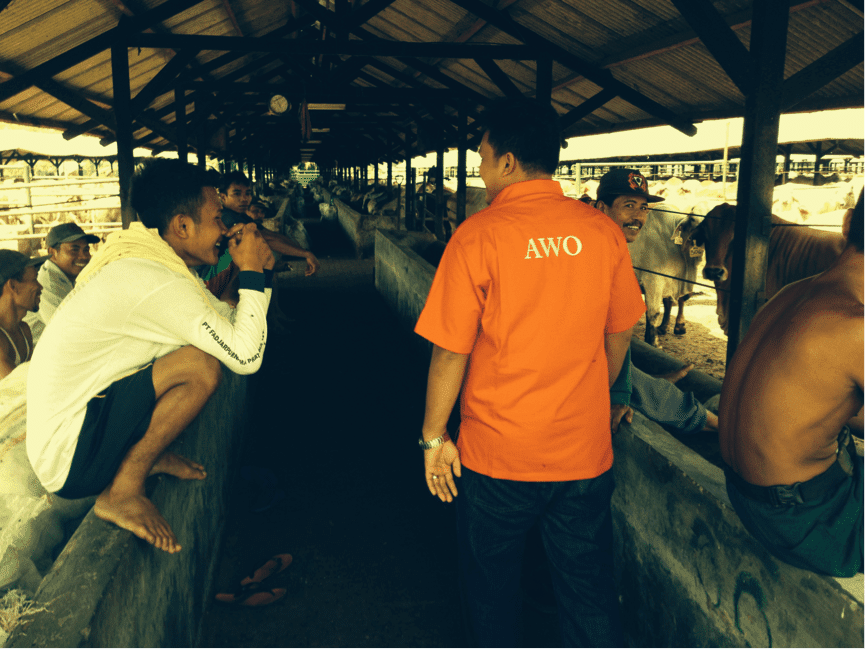Last year I wrote a story about a skinny boy called Bambang who was (and still is) an exceptional Animal Welfare Officer (AWO) in South Sumatera, Indonesia.
Ucok is an AWO in North Sumatera and while he is every bit as effective as Bambang, the two could hardly be more different.
32 year old Ucok (pronounced Ewe-chock) is built like a bull and exudes physical power but like most truly strong men, he has no need to act tough and in fact plays down his huge strength with an exceptionally friendly approach to everyone and a disarmingly happy smile.
Indonesians have a similar habit to Australians where they often give someone a nick name that is the opposite of a personal characteristic and this is the case with Ucok which is an ethnic Batak name for a baby boy or “little brother”. Unless his brother is 7 feet tall, Ucok is nobody’s “little” brother!
His physical presence is matched with a fine education in Animal Husbandry from the University of North Sumatera in Medan followed by a broad range of field experience in animal production projects around Sumatera and southern Malaysia and for a time with the recovery efforts following the 2004 Tsunami.
In 2008 Ucok joined PT LAL, a live cattle importer and feedlot company owned by the Gunawan family, one of the best known cattle trading and production dynasty’s in Indonesia.
Like Bambang, Ucok became an AWO in 2011 when the trade from Australia was closed and the new Exporter Supply Chain Assurance System (ESCAS) arrangements were implemented.
He is now the senior AWO for PT LAL, supervising a large number of company feedlots and customer abattoirs spread across north Sumatera from Aceh at the very northern tip to Padang on the central west coast. One of Ucok’s many surprises is that he speaks six languages including Javanese, Bahasa Malaysia, Batak, English, Bahasa Perisir (west coast dialect) and of course the national language of Bahasa Indonesia.
Having been associated with the evolution of ESCAS since the very beginning, Ucok understands the system as well as the most experienced operators. He is a great asset to his employer, being able to convince all of the stakeholders in his supply chains the need to conduct their business in a manner that ensures animal welfare and traceability but at the same time driving the best commercial outcomes for his company.
The ESCAS system has been a great success in Indonesia for a number of different reasons, many of which have been entirely unintended.
The most obvious of these accidental benefits is the dramatic improvements in abattoir work-health and safety. Prior to the introduction of stunning and the non-stunning hydraulic restraint boxes, butchers were placing themselves at great personal risk every time they slaughtered an animal using the traditional rope casting methods.
These old techniques were slow, hard work and dangerous. Today, butchers go home much earlier than they ever did before because excellent cattle restraint or stunning reduces the time of their daily duties by about half.
With butchers who are less tired, have good animal restraint and use sharper knives, the rate of accidental knife wounds and other injuries have reduced significantly.
The work of highly effective AWOs like Ucok and Bambang is no longer seen as some sort of weird imposition from the Australian government but a new and easier way of doing things providing major benefits for the hard working men on the slaughter floor.
While Australians are focused primarily on animal welfare, the accidental human welfare bonus from the implementation of ESCAS is a major and most welcome benefit for Indonesian workers.
Ucok and Bambang are great examples of the incredible diversity that defines Indonesia. Their personalities couldn’t be more different, they are different ethnically and physically but when it comes to their vital role as AWOs they both deliver exceptional results.
Dr Ross Ainsworth’s monthly South East Asian reports and articles are first published exclusively on Beef Central. To view more of Dr Ainsworth’s previous Beef Central articles click here. To visit his personal South East Asia report blog site, click here.







Well written Ross,
Ucok is an in-dispensable resource to when ever there is work to be done in North Sumatra, and deserves all the credit given for diligence, personality and sound knowledge of the industry.
Regards Greg.